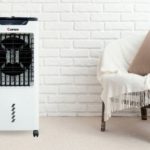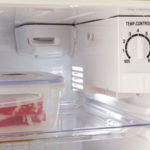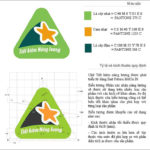Recalculate Air Conditioner Capacity and Room Size
The discrepancy between the capacity of an air conditioner and the room size is the primary reason for skyrocketing electricity bills. Whether it’s a case of “too much” or “too little,” it ultimately leads to wasteful energy consumption.
Air Conditioner Capacity Calculation Based on Room Size
Air Conditioner Capacity Calculation Based on Usage
It’s essential to verify the accuracy of the installed air conditioner’s capacity relative to the room size. This crucial step helps determine appropriate solutions, such as upgrading, replacing, or relocating the unit. While the initial investment may seem significant, it proves to be a cost-effective decision compared to the cumulative energy wastage over several months.
Tips to Ease the Burden on Your Air Conditioner
For every 1-degree Celsius increase in temperature settings, you save more than 3% in energy consumption.
By minimizing unnecessary heat-generating factors, you substantially reduce your energy costs. Here are some specific tips:
– Install your air conditioner in cooler areas of your home, such as the east or north side, where direct sunlight is minimal.
– Ensure the outdoor unit is not placed near heat sources, moisture, fumes, or corrosive chemicals. If multiple outdoor units are installed in a confined area, arrange them to prevent hot air from circulating from one unit to another.
– Maintain a stable room temperature and use curtains to block heat from entering through glass doors or windows. Additionally, turn off unnecessary lights when the air conditioner is in use.
– Combining an air conditioner with a fan can enhance the cooling effect without lowering the temperature. The fan circulates warm air upwards and pushes cool air downwards, creating a wind chill effect for a more comfortable environment.

Smart Strategies for Turning Your Air Conditioner On and Off
Avoid setting extremely low temperatures and maintaining them for extended periods. The optimal temperature for energy efficiency and comfort in the Vietnamese climate is above 25 degrees Celsius, with a temperature difference of 3 to 5 degrees from the outdoors.
This range helps prevent heat shock when transitioning between indoor and outdoor environments.
Only turn off your air conditioner if you plan to be away for an hour or more. Frequent on-and-off cycles consume more energy due to the high power required for restarting the unit.
During evenings, as outdoor temperatures naturally decrease, there’s no need to maintain very low indoor temperatures. Set a timer to automatically turn off the air conditioner at an appropriate time. Additionally, our bodies don’t require extremely low temperatures during sleep.
After turning off the air conditioner with the remote control, remember to switch off the circuit breaker as well. Otherwise, the unit will continue to consume electricity, leading to unexpected costs.
Regularly cleaning the air conditioner’s filter can result in energy savings of up to 7%.
Distinguish Between “Cool” and “Dry” Modes
“Cool” mode is indicated by a snowflake icon and provides cool air, while “Dry” mode, represented by a water droplet, removes moisture from the air without significantly lowering the temperature.
“Dry” mode consumes less electricity because it only removes humidity, making the room feel less stuffy without extensive cooling.
Many people choose “Dry” mode believing it saves energy. However, the optimal mode depends on the humidity level. “Dry” mode is effective when humidity is high, typically above 60%. On hot and dry days, with humidity below 50%, “Cool” mode is the better choice.
Several smartphone apps can provide you with the humidity levels in your specific area.

Tips for Efficient Use of Inverter Air Conditioners
Inverter air conditioners are marketed as energy-efficient solutions. However, this advantage is most noticeable when the unit operates continuously for extended periods, typically around 8 hours a day, resulting in substantial energy savings. Conversely, using an inverter air conditioner intermittently for short periods may lead to higher energy consumption than a non-inverter model.
When purchasing an air conditioner, consider the Energy Efficiency Ratio (EER). Modern air conditioners display their EER, and models with higher EER ratings consume less energy.
Mai Anh
Understand Energy-Saving Labels When Shopping for Energy-Efficient Products
6 Ways to Reduce Electricity Costs with Air Cooler Fans
 Electricity Costs with Air Cooler Fans’>
Electricity Costs with Air Cooler Fans’>Do you dread opening your monthly electricity bill due to the usage of your air conditioning unit? This article will show you six simple steps to help reduce costs and prevent your power bill from getting too high.
Maximizing Durability and Energy Efficiency with High-Speed Kettles: Tips and Advice
Are you an electric kettle aficionado? If so, you’ll appreciate Ði?n máy Xanh’s latest offering. We’ve compiled comprehensive instructions to help you make the most of your electric kettle, including tips on how to prolong its life as well as maximize energy savings. Let’s get your kettle expertise up to date!


































